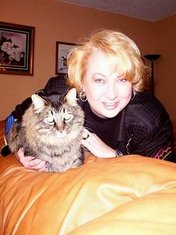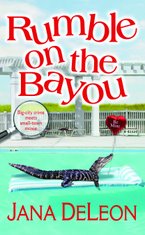I get a lot of requests from newbie writers for reference material. So I thought I'd do something a little different this week and cover some of the books that are in my library and a bit about what each covers. I just grabbed the first one off the shelf this morning (I was in a hurry to get to work) and this is what I came up with for today:
The 38 Most Common Fiction Writing Mistakes by Jack Bickham
For those of you not in the know, Jack Bickham is also the author of Scene & Structure, the absolute bible of novel structures and explanation of scene & sequel - but we'll cover that later. Anyway, the point is, this guy knows what he's talking about. Sometimes people are put off by his phrasing, so I'm warning you now - he's not being condescending - he's a college professor and tends to write in pure academia language. It's not personal people.
38 covers tons of ground, from reasons to start and stay started all the way up to relationships with your editor.
Some of the chapters include: Don't Make Excuses, Don't Consider Yourself Too Smart, Don't Describe Sunsets, Don't Duck Trouble, Don't Lecture Your Reader, Don't Mangle Characters' Speech, Don't Forget Sense Impressions, Don't Worry About Being Obvious, Don't Give Up and many more.
The chapter I wanted to talk about a little bit more today is Don't Ignore Professional Advice. God, if I had a nickel for every time someone has received excellent advice from a published author and blatantly ignored it, well......back to that whole Dooney & Bourke comment from the last blog.
So let's assume you're in need of some advice - it could be on technique, time management, industry, marketing - whatever. You haven't found the answer in a book or in 1000 hours of online searching, so your next step is to ask someone. If you're really fortunate, you have a local writer's chapter with many published members. If not, you can always find published authors online. I am going to assume that you would NEVER ask an important question of an author you don't respect or admire, so we're going to also assume this person is competent in the field of writing for publication.
Then why on earth would you completely ignore everything they say????
Now, realize, I'm not about to imply that one writer can tell another exactly how everything should be done. But people who are doing it well enough to sell have obviously made things work. I believe the problem is many people talk to published authors and don't like the answer they get so they choose to ignore it altogether. What a waste. Please be open minded enough to consider the source, the viewpoint they are coming from and decide if what they are saying applies to you or is a fit for your situation. Maybe you ultimately decide it's not. Then pick another author with a closer fit for your genre/style, etc and ask again.
And please remember, just like in critiquing or rejection letters, if two or more knowledgable people are saying the same thing - there's usually a problem.
Don't let your ego or rose-colored glasses get in the way of your own progress.
Monday, May 22, 2006
Subscribe to:
Post Comments (Atom)
Musings of a Louisiana Liar

Everyone knows what "they" say about opinions, but we all have one anyway so why not publish it - right? Welcome to my somewhat limited and sarcastic view of the world.
About Me
- Jana DeLeon
- Married, three dogs, three cats, one brain cell remaining......
Coming October 30, 2007

UNLUCKY
My debut!

RT Book Reviews TOP PICK!
2 comments:
Jana, that is so true about some people asking advice of a professional then ignoring the advice. Which is fine, if the advice is not solid but it should be!
One thing I haven't had the chance to do is pick up many books on writing technique. Mostly because I didn't have the money. ;D One day I hope to pick up some of these great recommended books.
Tell me about the money part - the book buying habit can get REALLY expensive REALLY fast. I find a lot at Half Price Books. And I always ask people for bookstore gift cards for Christmas and birthdays. That helps a lot.
Post a Comment